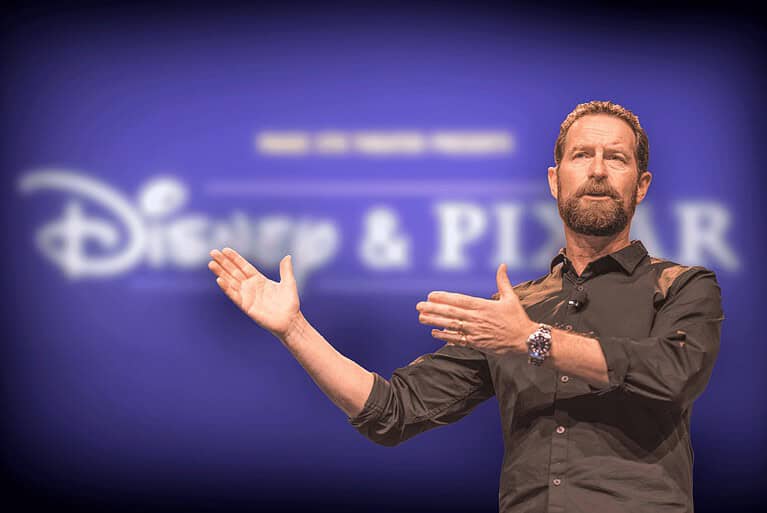- Author: Lucy Bloom
- Word Count: 499
Read the news article
Generosity is an interesting beast. As a charity CEO, I have seen it expressed in many different ways. The best kind of generosity comes with warmth and good old NSA – no strings attached. This kind of generosity is glorious to witness and is the backbone of charity work all over the world. The worst kind smacks you over the head with their husband’s cheque book.
I wrote a whole chapter about kindness and another on charity in my latest book, but I have continued to wonder about the ‘why’ of generosity. Why do some people give with nothing expected in return, even when they don’t have much themselves? Why do others use it to wield control and command kudos?
So I do what I always do when I don’t understand why people behave the way they do and I consult the neuroscientific research.
The origins of human generosity go back to when knuckle-draggers evolved into hunter-gatherers. Survival of the species relied on a herd mentality of care where older, fitter humans helped younger, slower, cuter ones. Those who didn’t participate in sharing or self-sacrifice for the herd were removed by natural selection. I wish stingy bastards in 2019 were the same: removed by natural selection.
Nature and nurture
According to science, humans are a combination of nature and nurture when it comes to generosity. The brain rewards you with a shot of feel-good dopamine when you are generous. That delicious hormone literally sizzles through your bloodstream when you take your imaginary generosity gland for a whirl. It is a biological boomerang: give to someone who needs it and the joy will bounce right back at you as a warm fuzzy feeling of reward and delight.
Humans employ two things when they are assessing whether to be generous: logic and empathy. The distraction of the decision-making part of the brain causes people to be more generous. Logic introduces an assessment of benefit and loss for giver and receiver. If the giver sees they can make a difference to the receiver without any significant loss to themselves, we have a winner in the logical generosity department!
Why so stingy?
So what makes a stingy bastard? Or worse, someone who is generous for all the wrong reasons. It seems to be the work of the nature/nurture/values trifecta. All three of which are done and dusted by the time humans are young adults. Meet an older person who lacks generosity and you really can’t convince them to repave their neural tendencies and nurtured behaviours with values of generosity and welfare. Unless you can appeal to their ego.
If you are born with less neural empathy (nature) than the next guy, you will be less likely to give. But that part of your brain is not fully developed until humans are 30. This explains why teenagers can be such breathtakingly selfish creatures. Teen brains lack neural empathy.
Article written by LUCY BLOOM and subscribe to our Podcast Channel
Further articles you may enjoy:
- (8)
Michelle Curran: A Beacon of Leadership, Motivation, and Teamwork In the dynamic landscape of leadership and motivation, certain individuals emerge as beacons, guiding others through the intricacies of teamwork and motivation. Among these luminaries stands Michelle “Mace” Curran, a name synonymous with excellence in leadership, motivation, and teamwork. With a background steeped in military expertise […]
- April 26, 2024
- (4)
It is a common understanding of a vast majority of leaders that the employee engagement is a company’s most important asset. But in reality, that is only true if the majority of the workforce is fully engaged in their work. If not, they are either adding minimal value or are actively working against the organization. […]
- December 20, 2022
- (2)
Power-Ups That Will Help You Reach the Next Level There is something nostalgic about playing video games. With most games, your objectives involve jumping over obstacles, dodging enemy attacks, and collecting the power-ups you’ll need to advance. In real life, stepping on turtles and eating random mushrooms is never a good idea. Still, these video […]
- May 4, 2023
- (22)
Hi, I’m Zion Clark. My journey has been filled with challenges that have tested my limits physically, mentally, and emotionally to Building Unbreakable Mental Strength to Overcome Life’s Challenges . One thing I’ve learned through it all is that mental strength is what separates those who give up from those who keep pushing forward, no matter […]
- November 3, 2024
- (13)
Mastering Nonverbal Communication: The Transformative Power of Body Language Coaching with Kristin Bock In our fast-paced, communication-heavy world, mastering the art of nonverbal communication can be a game-changer. Enter Kristin Bock, a body language expert and founder of Body Language Blueprints, who helps professionals leverage nonverbal cues to enhance their personal and professional interactions. In […]
- July 15, 2024
- (86)
A common problem new pilots struggle with is avoiding a PIO or pilot-induced oscillation. So how do we Stop the Cycle as We’re all familiar with the concept of overcorrecting in a car. A deer runs out, you’re driving tired, you’re near the edge of the road, and you yank the wheel the other direction […]
- December 22, 2022
- (2)
Connection with someone takes more than common interests of What Makes People Click. It also takes this. Do you know who created the world’s first social network? It wasn’t Zuckerberg, Dorsey, or Tom from MySpace. It was the person who kindled the first fire. The fire’s loud crackling, billowing smoke, and beautiful orange glow attracted others […]
- April 18, 2023
- (2)
The power to Tap into Emotion is something that has a universal appeal and can breathe life into simple cold facts. Have you ever pitched something you knew was great, only to have it shot down? Of course you have. We all have. And though the rejection might be devastating in the moment, there’s a […]
- December 14, 2022
No results available










